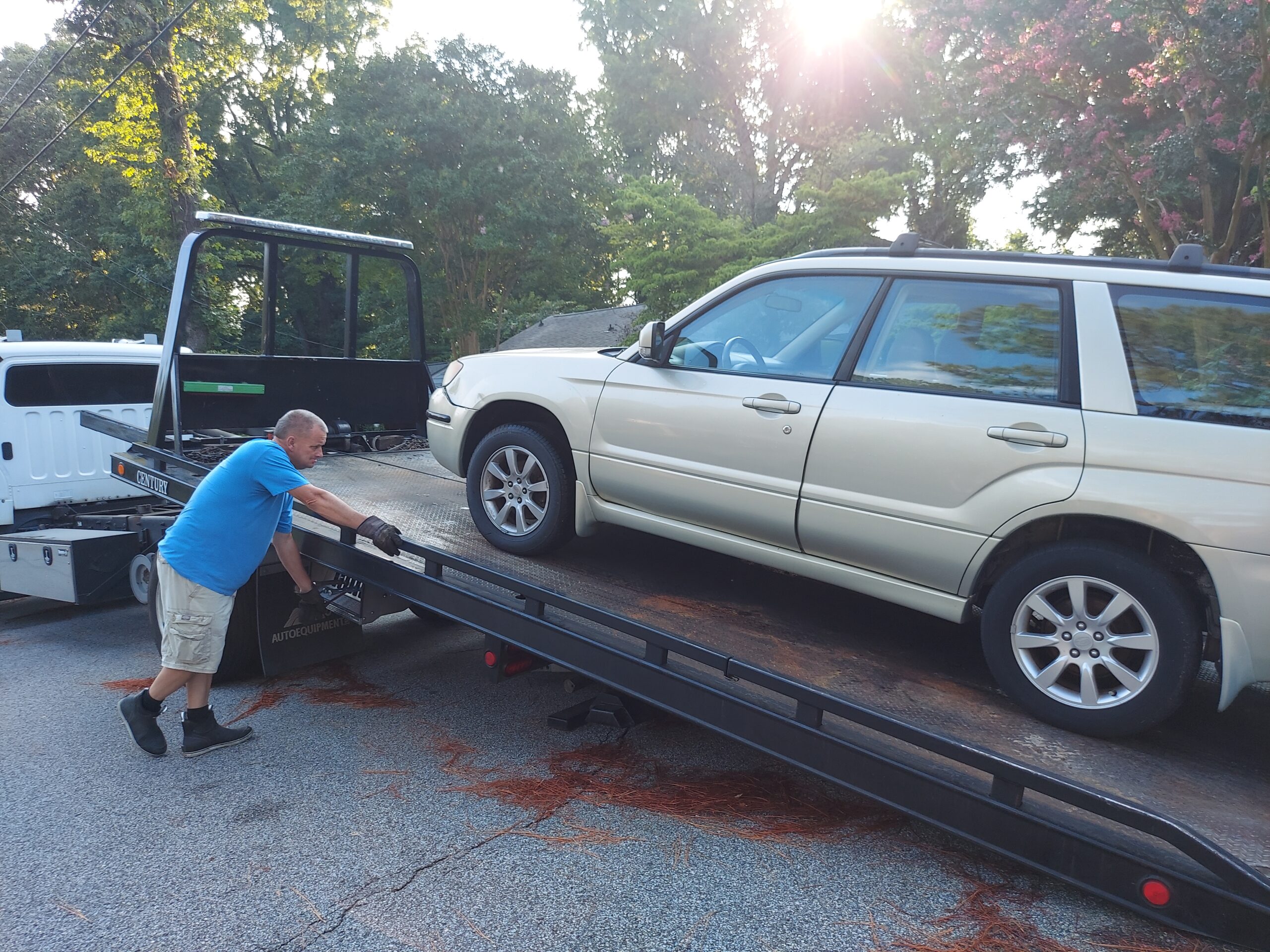
If you’re sitting on an old vehicle that’s just collecting dust (or worse, expensive repairs), now might be the perfect time to turn it into something more meaningful. Donating your car isn’t just about clearing up space in your driveway — it can also come with financial perks, and the satisfaction of giving back.
Now I donated my 2008ish Subaru Forester that I got what I thought was a pretty good deal at the time in 2018. $3,000 for a car that had just been traded in. I saw it on a Subaru website, brand new listing with no listing price. Checking a few days later I saw the price of $5,900 and thought that has potential. Went in for a test drive… it was snowing so it was prime time for a test. I was satisfied and didn’t even want to haggle, just pay cash.
That’s when they told me they weren’t selling on their lot, it didn’t meet the dealership standards and they didn’t want their name on it. They’re sending it to auction.
As it was, the lady that traded it in bought it there, had it serviced there and the guys in the shop told me all about its history and issues. And I still wanted to buy it. So I offered them the $3,000 for the car just to and emphasized it save them the hassle of dealing with it, and it was mine.
It was a solid car for 3 years, but during the 4th we experienced some intermittent transmission issue till I finally decided to donate it to National Public Radio through the Car Talk Vehicle Donation Program. Here’s why….
Here are five smart reasons why donating your car could be one of your best decisions this year:
1. You Could Qualify for a Tax Deduction
One of the biggest incentives for donating a car is the potential tax break. If you donate to a qualified nonprofit, you may be able to deduct the car’s fair market value on your taxes (meaning what it is sold for). While the rules vary depending on how the charity uses the vehicle, it can be a nice financial benefit come tax season.
2. Skip the Hassle of Selling
Let’s real — selling a used car can be a headache. Between listing it, negotiating with buyers, and dealing with paperwork, it’s not always worth the effort. Donating your car is usually a straightforward process, and most charities will even tow it away for free.
3. Help a Cause You Care About
Whether it’s supporting veterans, environmental groups, or local community services, your donation can make a real difference. Cars can be sold at auction or used directly by organizations to support their mission, which means your old ride could be driving positive change.
4. It’s a Greener Option
Got a car that’s not worth much or no longer runs like mine? Donating it can keep it out of the junkyard. Many organizations work with recycling partners to safely salvage usable parts or scrap metal — making your donation an environmentally responsible move.
5. Clear Up Space
An unused car takes up room and mental bandwidth. Whether it’s an eyesore or just something you’ve been meaning to deal with, donating it clears the clutter — physically and mentally — so you can focus on more important things.
Final Thoughts
You can see that donating your car isn’t just a good deed — it can be a smart, low-effort way to get rid of an old vehicle, support a cause, and possibly put a boost your tax return. If your car’s taking up space and also not adding value to your life, why not give it a second life doing some good? I was stoked when I received a receipt showing it has sold for $800 as a charitable donation for my taxes. I was fairly surprised as it didn’t even run, as seen in the pic of it getting loaded on the tow truck (again, for FREE).
In the end we took the standard deduction for 2022 so my tax return was pretty simple. Didn’t really need that receipt after all, but hey, that’s $800 toward some of my favorite listening.
Examples of Charitable Contributions—A Quick Check
| Use the following lists for a quick check of whether you can deduct a contribution. See the rest of this publication for more information and additional rules and limits that may apply. |
| Deductible As Charitable Contributions | Not Deductible As Charitable Contributions |
| Money or property you give to: | Money or property you give to: |
| Churches, synagogues, temples, mosques, and other religious organizations Federal, state, and local governments, if your contribution is solely for public purposes (for example, a gift to reduce the public debt or maintain a public park)Nonprofit schools and hospitals The Salvation Army, American Red Cross, CARE, Goodwill Industries, United Way, Scouts BSA, Girl Scouts of America, Boys and Girls Clubs of America, etc. War veterans’ groups Expenses paid for a student living with you, sponsored by a qualified organization Out-of-pocket expenses when you serve a qualified organization as a volunteer | Civic leagues, social and sports clubs, labor unions, and chambers of commerce Foreign organizations (except certain Canadian, Israeli, and Mexican charities) Groups that are run for personal profit, Groups whose purpose is to lobby for law changes, Homeowners’ Associations Individuals Political groups or candidates for public office Cost of raffle, bingo, or lottery tickets Dues, fees, or bills paid to country clubs, lodges, fraternal orders, or similar groups Tuition Value of your time or services Value of blood given to a blood bank |
R. A. Goldston, CPA at Large

 Next post
Next post
